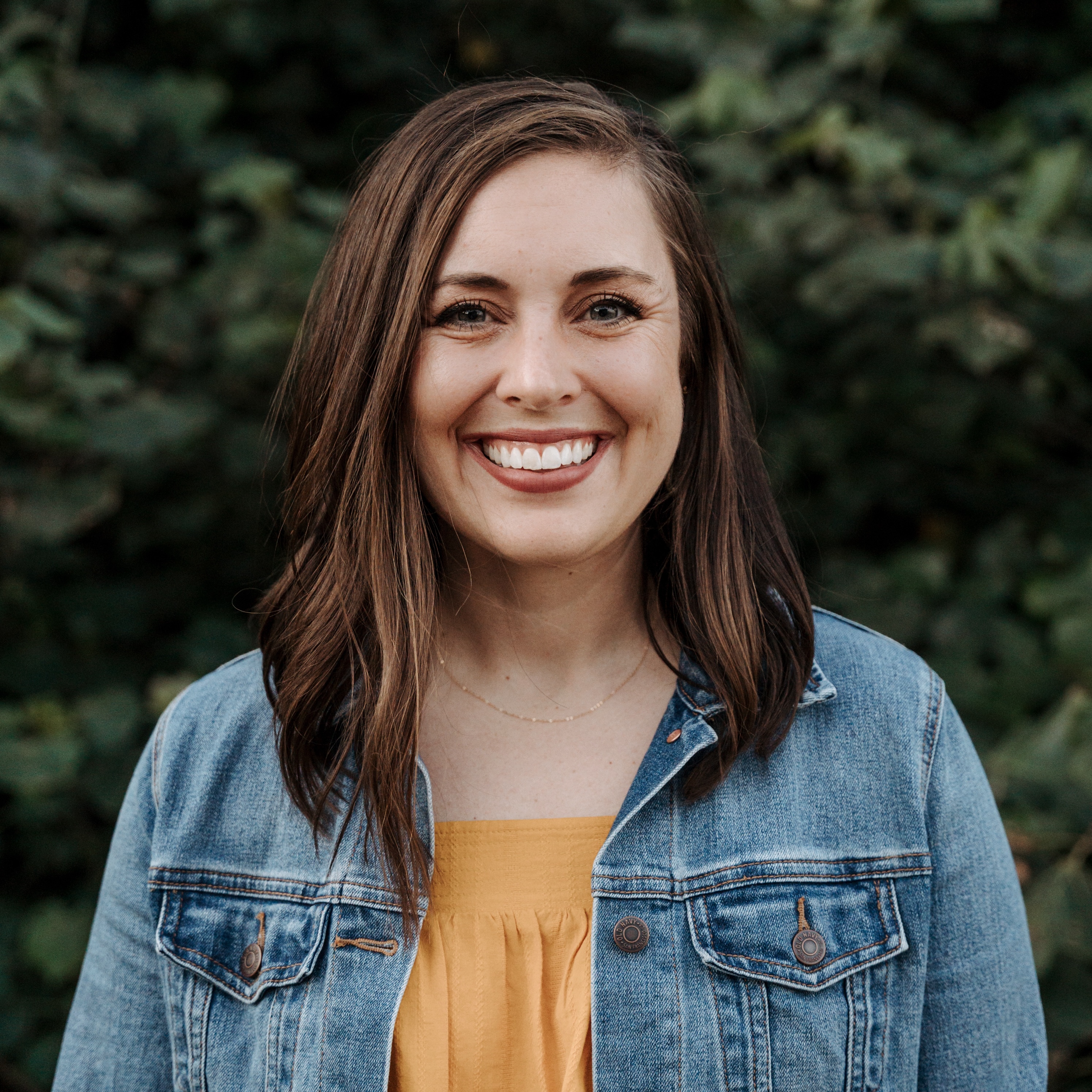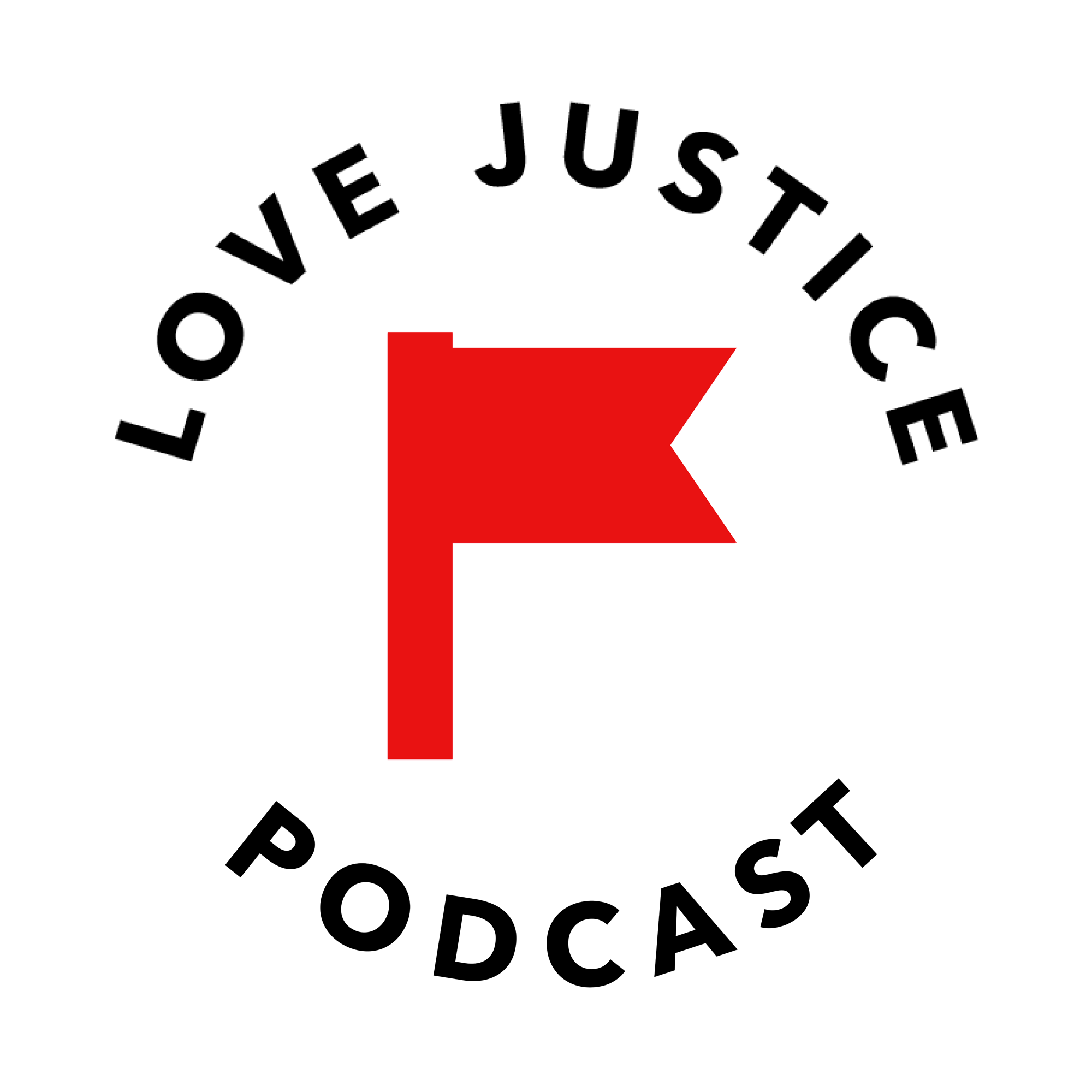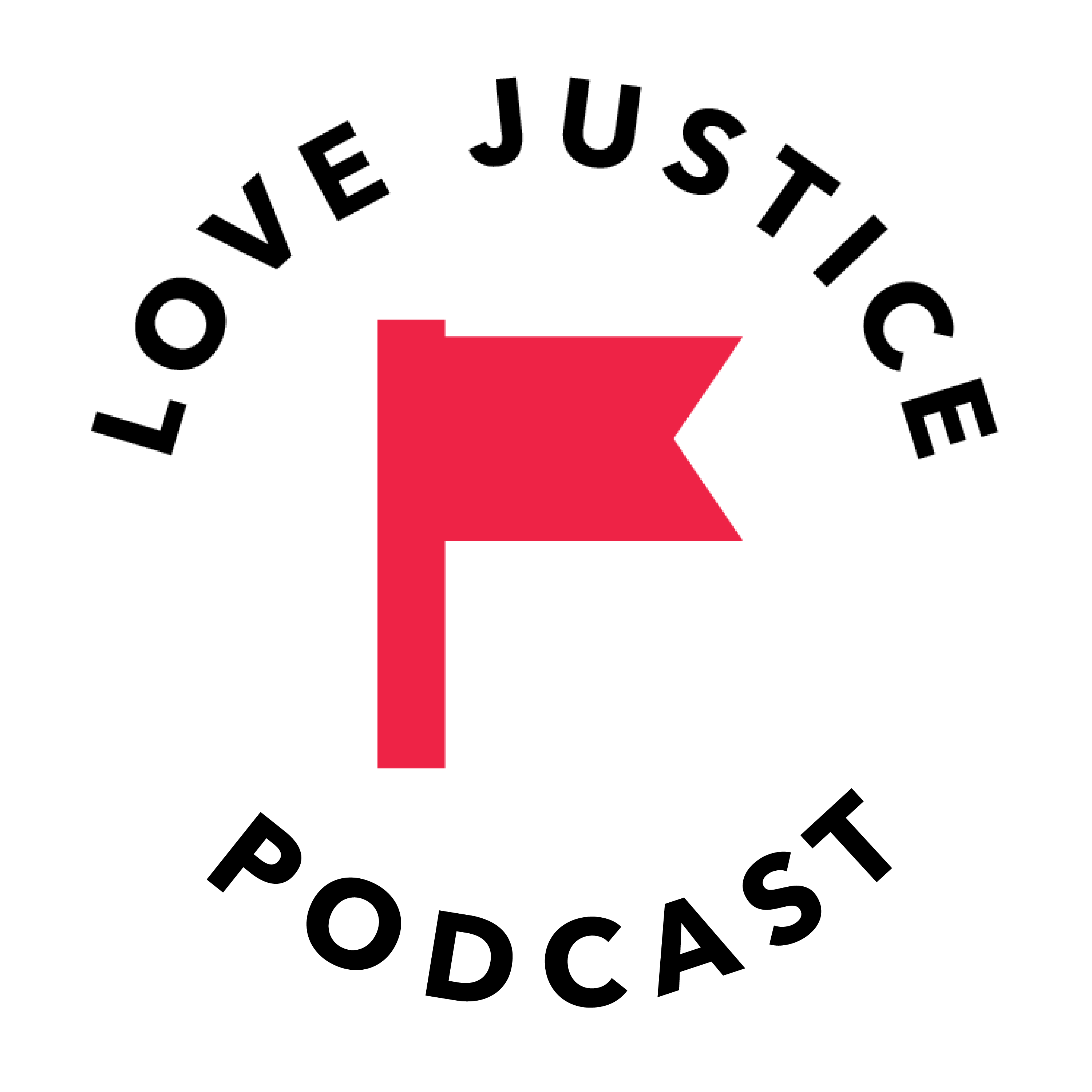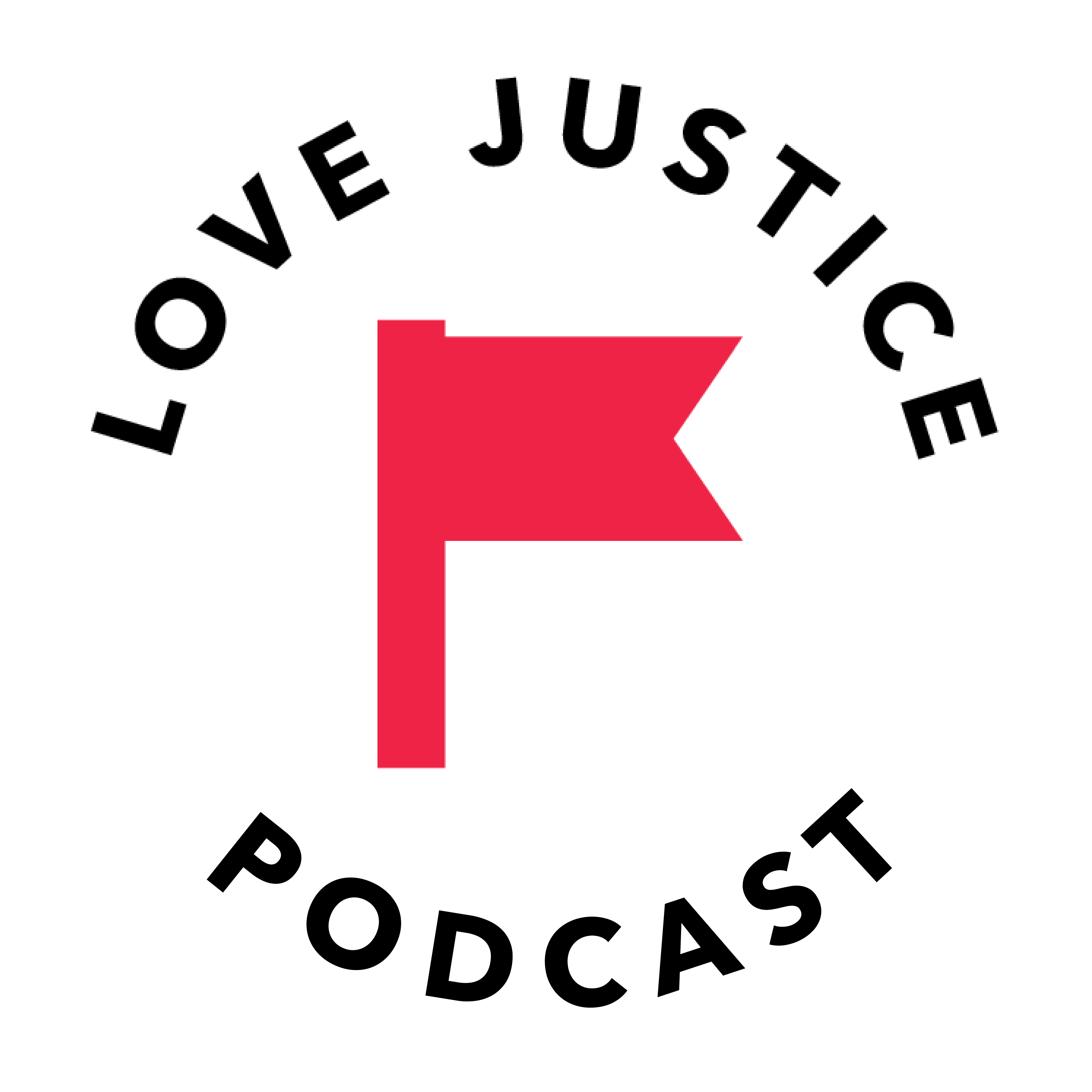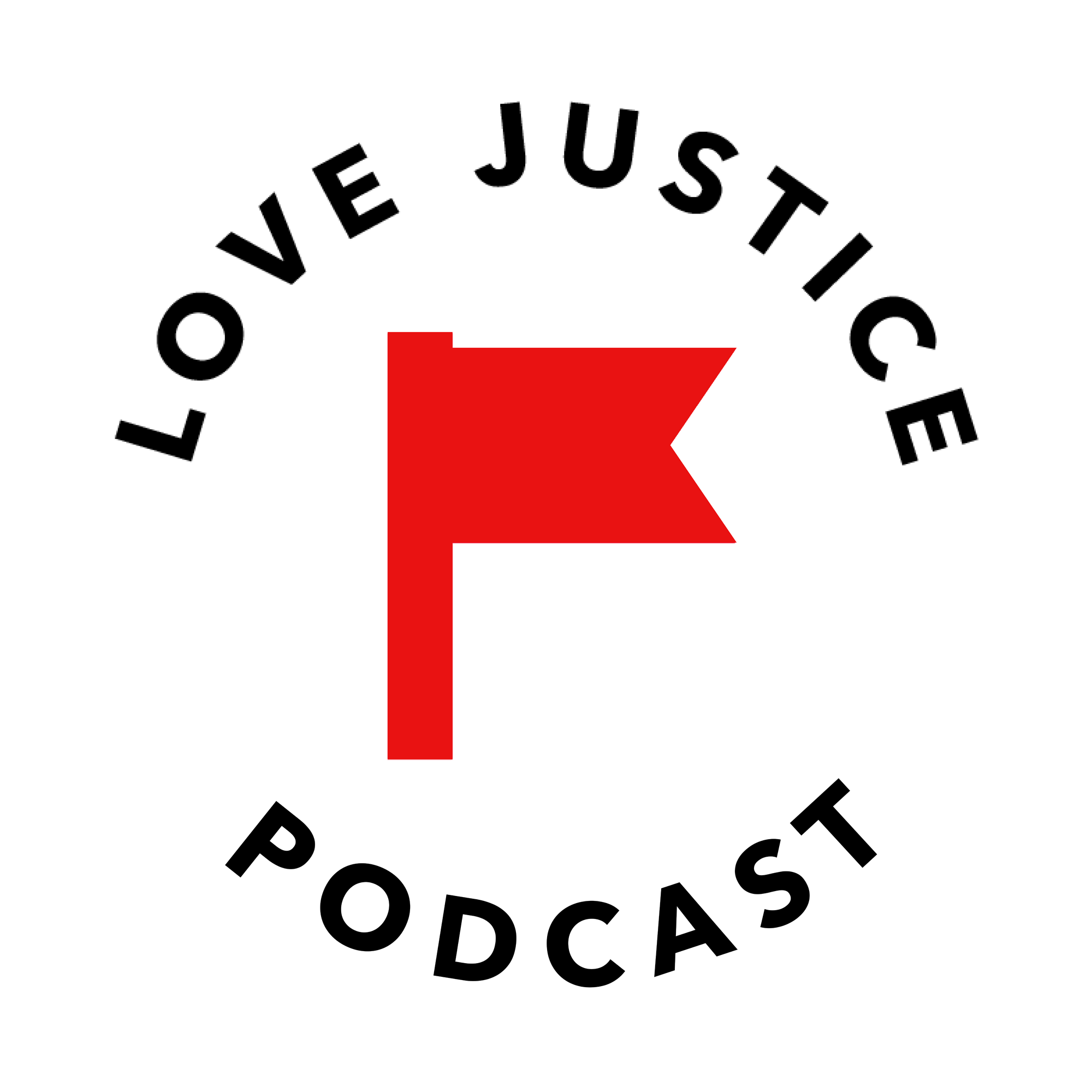Episode Transcript
[00:00:03] Speaker A: Welcome to the Love Justice Podcast, where we hear from different voices who are joining us in the fight against modern day slavery. Today's episode is part of our Stories edition.
[00:00:18] Speaker B: Everybody was like, well, why should my passport be taken from me? And I was not told about this before coming.
[00:00:26] Speaker A: That's the voice of a young woman who is trafficked into domestic slavery. We'll call her Victoria in this episode to protect her identity.
I'm Paula Cornell, and you're listening to a Stories edition of the Love Justice Podcast.
If you're not familiar with our work, Love Justice International is on a mission to fight the world's greatest injustices. And right now, we focus primarily on fighting human trafficking, intercepting people as they are being trafficked, but before they are enslaved.
Whenever I talk with people about the subject of human trafficking, it seems like there is a general connotation that trafficking is either sex trafficking or child trafficking. I'm hoping that Victoria's story will open your mind and heart to another side of this injustice. Because the more we can understand human trafficking at all levels, the better equipped we can be to fight it.
This particular story starts when Victoria was a college student at a local community college studying journalism.
She worked as a journalist at a local radio station, and while it was her passion, she wasn't making very much money.
That's when she heard about a job opportunity from a man who was staying with her friend while he traveled through.
[00:01:35] Speaker B: I was here in Liberia and then there was this guy and contacted me that there is a job or an opportunity in Oman that he needed not only me or other ladies to go and work there. That the work in Oman is better than work that is in Liberia.
[00:01:59] Speaker A: The job was for domestic servitude or household help. She would be employed by a family in Oman to help out with cooking, cleaning and childcare.
Her friend that was hosting this recruiter didn't know the man well, but genuinely thought the opportunity was a good one and encouraged her to accept.
Victoria, being a journalist at heart, researched the job she was offered. Unsurprisingly, she found claims of harsh treatment from migrant workers.
Oman is one of several Middle east countries that use the kapila system for migrant work, in which an employer, rather than the government, is in charge of the migrant's legal status in the country.
This creates a power dynamic rampant with exploitation.
Victoria brought these concerns to the recruiter, but he denied all of it. He assured her that those accounts were lies. People were not mistreated in Oman. He even put someone on the phone to assure her that they were very happy working in Oman. Looking back now, Victoria told me she thinks he must have pre planned that phone call.
Someone must have agreed to lie for him.
[00:03:02] Speaker B: He took a lot of two things that could convince almost everyone.
Because in Liberia, you got a low rate of job opportunity, so everyone would wish to go out and get a better thing for themselves and their family.
[00:03:18] Speaker A: The recruiter promised her more than just a high salary. He told her that her employers would take care of all her food and clothing needs and even allow her to attend school part time to further her education. He cast a vision for a broad range of opportunities awaiting her there, if she would only accept.
From talking with Victoria, it was clear to me that education was extremely important to her. She is a smart and ambitious young woman, and in my own opinion, I wonder if this offer for higher education was an even stronger temptation than the offer of money.
But she also had four younger siblings and her parents to think of. She and her family lived in a hut that needed some renovations, and she was thinking of them too.
Victoria had done her research, but she wanted the opportunities to be true. She wanted to believe this man because it would have meant a whole new world of possibility for her future professional career and for her family. If he had been telling the truth, perhaps all of it seemed worth the risk of being wrong.
So she accepted.
[00:04:23] Speaker B: So without hesitation, most of the ladies were convinced because of what he said.
So I tried to ask this guy about Oman. How is it like? And he said that the place is okay. In fact, you don't need to carry any luggage. If you get there, they're going to give you clothes, they're going to buy you clothes, so you don't need to carry much luggage.
[00:04:47] Speaker A: The recruiter tells the women they don't need to bring luggage. Despite going away for a long time. This happens to be one of the red flags that our teams in the field look for as a warning sign of potential human trafficking. Traffickers might do this to avoid suspicion or to create a further sense of dependency from their victims.
[00:05:06] Speaker B: So we get the Oman in the first place. When we got on the airport, everyone passports, documents were being taken. Everybody was like, but why should my passport be taken from me? And I was not told about this before coming.
So that was the first thing that I observed, that it was not right, but you don't have right to say anything.
[00:05:29] Speaker A: Victoria notices that something is wrong, but at that point, it's too late. They were in Oman without money to get back, and without their passports, they couldn't legally leave.
When she arrived at her sponsor's home. She realized very quickly that the job was not what the recruiter called an agent had promised.
[00:05:48] Speaker B: My agent didn't tell me like maybe the actual salary that I was going to make and he didn't explain the job that I was going to do.
[00:06:01] Speaker A: He confidently assured her that she would be making far more than she made as a journalist and that the employers would give her a contract upon arrival.
In fact, no contract was given and payment was actually less than she made in journalism.
The family she worked for lived in a big peach colored house with three bedrooms, three living rooms, a dining room and four bathrooms. They had four children, a 12 year old, an 11 year old and 6 year old twins. Victoria lived in a small room off the kitchen and was the only worker for the household.
At first it wasn't so bad. She was welcomed, treated like family and allowed to rest when needed. But within a few months things began to deteriorate. Victoria believed the family got pressure from other families with workers who treated their servants more harshly.
She was no longer allowed to rest until the work was complete, even if it wasn't complete until midnight. They made her do absolutely everything in the house, even cleaning the walls and flushing the children's toilets. Sometimes they sent her to other family members houses, sometimes three houses in a day.
When she tried to advocate for herself and asked to go on some walks for exercise, they told her she could not. They said, you were brought here to work, you have to do it, you don't have rights here.
[00:07:16] Speaker B: I was explaining the work in detail or this is the work like you're going to be doing. In fact it's going to be every day, no day off.
You don't have any right to leave out, I mean to go out unless we are going out. So you have to work in the house every day, no rest for you. I was not so actually about this is how the world gonna be like. So I started to feel bad and actually there was no way for you to like find your own way out. One could not find their own way out from the beginning because they have their culture where you have to work for two years.
[00:07:57] Speaker A: If anyone wanted to leave before two years had passed, they had to pay off all the debts incurred from their travel. The agent had not communicated this detail to them.
Debt bondage is actually a very common means of force forcing someone into labor. And it's why strangers paying for travel is such a red flag for our monitors when they intercept someone.
[00:08:19] Speaker B: So when I get at my home I realized that things Were not okay just gonna work in the path of not worrying outside.
Don't have your own right of having a time to rest. Unless you complete all of that jobs in the house before you have a little time to rest, you are not allowed to move on your own until. Until you are told to do so. Or maybe they are going out and then they want you to follow them.
So that was something like, this is a complete violation of human rights. How could you stage someone in house and then depriving them of their movement? Not allowing them to have access, access to free movement or maybe to others.
Even like I was working in a home where, like, even if I'm taken to another house, I don't have the full right to talk to another housemate there.
[00:09:19] Speaker A: Facing this treatment on her own, Victoria wondered about the other girls she had come with.
[00:09:25] Speaker B: We left from Liberia and went to Oman, but we could not see each other. When you communicate on the phone, you don't have the right to go and see anyone.
No. Why? I came with my sister. I didn't see my sister. I don't know why it's my sister. I don't know what's happening to my sister.
[00:09:44] Speaker A: Just from the conversations I had with Victoria, it was clear to me that she's not the type of person to sit by and allow injustice to continue on without doing something about it.
So a quick recap. We left off with Victoria arriving in Oman thinking she just scored an incredible job helping a family where she'll make a lot of money and be able to continue her education.
When the recruiter takes her passport at the airport, it's her first sign that something is off.
The red flags only pile up from there.
She is not given a formal contract for her work.
The pay is less than promised, even, even less than she made at her job back home.
The labor is constant. With no time to rest, she is not allowed to leave the house. She can't go home until her travel debts are paid.
Victoria realizes she's in serious trouble. And beyond that, she worries about the women who came with her for similar jobs.
But the system that had her trapped couldn't hold her for very long.
Let's get into the inspiring second half of her story.
[00:10:49] Speaker B: So everyone was like, worried, you know, everyone has the same issue. You will communicate. Oh, how is the place? Everyone has the same, similar stories. So I decided to put them together in a group.
Like, we need to come together.
So I decided to do a network, like putting everyone in a particular group where we could communicate, share our experience.
And then know what we can do next.
So I open up a group chat on WhatsApp.
[00:11:21] Speaker A: There's strength in numbers. Victoria, realizing that each of the girls she had traveled with were facing similar abuses, unites them together through WhatsApp. Though she had only traveled with two other girls, the WhatsApp group gradually grew to about 200 young girls trapped in domestic slavery in Oman.
But even with the solidarity of the group, Victoria was losing patience with her situation.
[00:11:45] Speaker B: So for my own personal experience, it was a point in time where I got so tired and I decided to run away from home.
At that time, I was six months working, but I could not go because I have to complete two years.
So it was something like worrisome. And then I was like thinking, how can I go if I didn't know? Like, I could not figure out where can I go? I mean, I don't know this place, where would even if I run away, where am I going to stay? How am I going to manage to stay there? So it was, it was somehow challenging, you know, to figure out a particular solution.
So at, at the ninth hour, at that time, about 12:00am, I decided to leave the house alone.
So it was somehow risky, you know, so when I was leaving, I was able to cross the gate and then trying to walk out in the street.
It was also risky that particular night because you have even their own neighbors serving as security on each other.
Where you don't you. You won't even know how they will call your sponsor to say, oh, this, your worker is trying to escape. And in that country, if you escape from there, it's a big crime in a country.
And there is something that no one want to know why you are escaping. What's the mean reason that you are escaping.
No one want to know that when you escape, the sponsor will be like, take you to police.
[00:13:22] Speaker A: Stop for a moment and continue. Consider how different that is from a typical US perspective. In the US If I walk out on a job, no one is coming after me. And the police are certainly not wasting their time getting involved. I may not get a recommendation letter, but that's about the worst thing that can happen to me. When Victoria walks out on her job, the stakes are much higher.
[00:13:44] Speaker B: But unfortunately for me, I was not able to escape. And then the neighbors called my sponsor and they said that your worker or your employee is running away, so you have to come for help.
So I was caught that night, brought back home.
I was insulted. I was caught a dog. All of what I did in the home was like nothing I have done. I was taking the police station and then they asked me for my document, to turn my document over.
And then I would say, like, I don't have it. I've lost my document. You know, I don't have it. So they were like, you have it, you have to give it. I said, no, I don't have it. So it was so much terrifying that night. Yeah.
[00:14:32] Speaker A: If you recall, Victoria didn't have her documents because the recruiter confiscated them from her at the airport upon arrival and gave them to her employers.
[00:14:43] Speaker B: So I can just imagine how I overcome everything by the grace of God. So like the next day I. I didn't have the strength to do anything because they don't care whether you are happy or not. Just do their work. Yeah, they. They don't care about that. So the next day I was so much tired. Like we left out from in the morning, from the night I was up to the morning, I was so much tired to the extent that my skin got so much hot, I. I could not breathe. I could not even drink water. I could not do anything. And they were still like forcing me to go and work, you know. So one of the things that they do is that they always force you to work. Like they don't want to know whether you are sick or not. All they want you, all they want to do is just for you to complete their work. Yeah, Numerous of girls got sick and they were like complaining, oh, I'm sick, I'm sorry. Still working, you know, I can't make it anymore. And I. It's something like I would die in this place. So it was. It was something that, besides my own story, trying to gather for my friends who were there. It was so heavy for me.
[00:15:57] Speaker A: In addition to intense physical labor and verbal abuse, Victoria also began facing sexual harassment from the father of the family who would undress and front of her.
Still, she focused on her friends and the circle of fellow domestic workers she had brought together over WhatsApp.
[00:16:14] Speaker B: They asked me to like find a way out. What can we do to get out of the situation.
Like others are hoping or maybe looking up to me to find a solution.
So I have to be strong.
So I left in the house, continue working every day and also trying to make a way out for everyone.
[00:16:38] Speaker A: This was the part of the conversation that really impressed me. Despite being overworked and mistreated, Victoria didn't fall into a victim mentality. Instead, she focused on the group of girls as a whole and started brainstorming bigger ideas.
[00:16:53] Speaker B: Hearing the other stories of my sisters, where some of them were, were, were being beaten, some of them were being raped, Some of them were, like, very sick and could not even walk, but they were being forced to walk. Some of them were being sexually harassed, some of them were being humiliated.
There were a lot of so much different stories coming from every other person that I communicated with.
So I tried to make a way. I started doing some proposals, like writing some NGOs, writing some government officials, writing some of my media colleagues that this is a situation we have in Oman.
[00:17:35] Speaker A: In December of 2021, Victoria got in contact with Sean, a director with Love Justice. Sean coordinated with a series of other LJI staff, government officials, and nonprofit agencies to ensure her safety.
Here's Sean recounting those messages.
[00:17:53] Speaker C: Some of the messages that she was sending sounded confused, scared. We had to cut off conversation for a few days.
And then I kept reaching out to her saying, is everything okay? And then she came back and say, it's very risky for us here. And so, yeah, going through my mind was, we really have to help do what we can to help them get back.
[00:18:13] Speaker A: Rescues are not really our domain at Love Justice.
So most of what Shawn did for her was simply to find and connect her to the right people who could help. After the deception she had been through, Victoria was wary and didn't know who to trust. Sean helped guide her through the process, and help eventually came primarily through a Canadian man named Ward Reddick and a Ugandan woman named Esther, who was in Oman at the time.
I want to make a side note about Ward Reddick, because I looked him up and his story brought tears to my eyes. He lived in Uganda for seven years, running a jewelry export business. And after returning home to Canada in 2015, he heard that one of his former employees had a friend who had been trafficked. With the help of his Ugandan wife, who was able to translate for him, he helped this person get free by word of mouth. More people began referring cases to him, and he worked on them from his living room in Canada, communicating over messaging apps.
Finally, in 2022, just after this story with Victoria, he took a formal job with an anti trafficking nonprofit called Rain Collective. But at the time of this story, he was working on his own, out of the goodness of his heart.
Back to Victoria. The situation was urgent. At least one of the other young trafficked women that Victoria was in contact with died before she could return home.
Another had an operation for her kidney to be removed, likely for organ trafficking. But thankfully, the operation was not successful.
Victoria was getting more and More worried for all of them.
Sean shared this voice note that Victoria sent as she waited for help.
[00:19:53] Speaker B: The tension is too much. The tension is too much. So we want to tell you people that you people, you guys need to hurry up. You guys need to hurry up here.
[00:20:03] Speaker A: Sean and the others working to assist knew the situation was grave and they needed to do something quickly. By the end of January 2022, with the help of Ward and Esther, Victoria and some of the other girls were picked up from the homes where they worked and brought to a safe house.
Victoria became invaluable to those helping them, supplying data on 88 other trafficked women still waiting to be freed.
[00:20:27] Speaker C: And just her courage, I need to commend her courage and the way that she was able to gather evidence.
She became a leader among the group and providing evidence even in, you know, at risk to her own life in that situation. So, yeah, she really was courageous and that's what I found to be really amazing.
[00:20:50] Speaker A: Finally, by April 2022, Victoria was able to return home to Liberia.
[00:20:57] Speaker B: And I came back home.
Coming back home, another story where most ladies who escaped didn't come with anything home. Like they left their luggages, left everything back home and we all came very empty.
So coming back home, trying to start life over was another challenge where we're like thinking, where are we actually going to start that film?
Because living before leaving Liberia, everyone was like, okay, maybe I'm going to do a better things, so let me give out these things that I have to those who don't hide.
So coming back home, I was like, where am I going to start from? You know, I left my job, I left my work. Everything I was doing, trying to elevate everything has collapsed. We are looking for place to stay, we are looking for money to green sector, we are looking for food.
[00:21:53] Speaker A: After returning home, the road to recovery for most of the girls would stretch long ahead of them. Their time in Oman took an emotional, physical and mental toll on each of them. But even beyond that, they lacked the resources to restart their lives.
By June of 2022, 29 women had successfully returned home from being trafficked in Oman. By the end of that same year, that number number had increased over 125.
The Liberian government has since developed a reintegration plan to support repatriated victims, including psychosocial counseling and livelihood support.
They've also been working to prosecute the trafficker who recruited Victoria along with so many other young girls. His name is Cephas Salabe and he was arrested on charges of Human trafficking, criminal solicitation and theft of property. The criminal sentence for human trafficking in Liberia is a minimum of 20 years. But after four months, he was released on bail. With two family members acting as sureties, that means they take on responsibility for ensuring that he shows up at his trial.
Even so, Salabe fled immediately upon release and appears to have completely disappeared.
I found no record of him online since that happened in late 2022. 2 the two family members were briefly jailed in his place before likewise being released.
This is unfortunately an all too common trend of traffickers escaping consequences for their crimes. Global laws and policies around human trafficking offenses have been gradually tightening and improving, but there is still a long way to go to ensure that justice is upheld in these cases.
As for Victoria, she joined the Liberian team with Love justice shortly after her return home, working as a monitor to prevent other people from falling for the same traps. A fitting role for someone who had already proven her capability and passion for justice.
[00:23:48] Speaker B: I was trying to like, how to identify those who are being trafficked and how can you prevent them from going into eras of trafficking? How can you educate them that the trafficking is a kind of risky issue?
So these were, these are things that we are working on currently. So I'm so grateful that today I'm back home and I'm trying to, to work on myself. And today at least I have a little thing to do to like have a job. And I'm serving as a money tour for Love Justice Liberia. So I feel happy working as a monitor because it will help most of my colleagues or maybe young people who know the difference between trafficking and that of real traveling because it helps a lot of how to prevent them going into danger. Yeah, that's our main point. So I feel happy that yes, I'm not just sitting alone, but I'm also sharing my experience with those that I meet out there. Even when I, when I got to Oman, I was fully evolved into advocates into Africa because I help not only me, I helped a lot of people who are today free. They're all together today.
So yes, I love the field, especially in the area of advocacy. I love it because it helped to prevent people, to save lives and to make good things out of their life.
[00:25:16] Speaker A: The sad reality is that not every girl came home. It's a harsh truth about human trafficking, trafficking in General. Less than 1% of trafficking victims worldwide ever make it back home.
But that heartbreaking reality is what drives us to fight back with urgency and excellence. And there's good news. Love Justice's transit monitoring strategy stops people as they are being trafficked but before it's too late, before they are exploited.
Now Victoria keeps vigilant watch at her station for signs of other people who might be tricked into a false opportunity as she once was.
This one life brought back from slavery into freedom has helped protect hundreds more.
Your actions have a ripple effect.
What kind of impact might you have from protecting even one life from slavery?
I hope Victoria's story has inspired you today. If you'd like to learn more about our work or give to keep another person free from slavery, visit our website at lovejustice ngo, thanks for listening.
